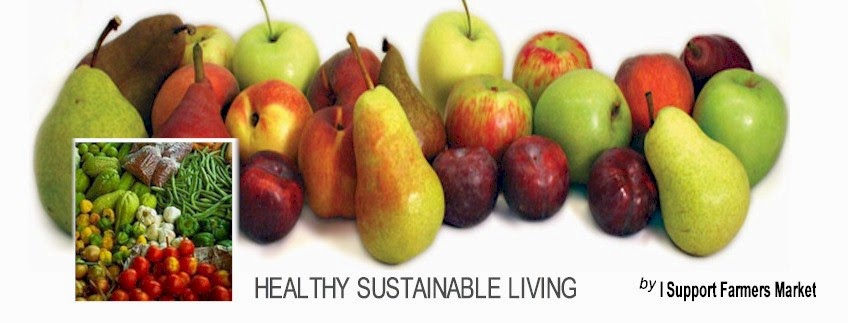High levels of phytochemicals and antioxidants naturally occurring in blueberries and strawberries reducing the risk factors of many ailments including cardiovascular disease and metabolic syndrome. Three or more servings of blueberries and strawberries per week may slash a woman's risk of a heart attack by as much as 33%, says a new study from Harvard.
Data from 93,600 women aged between 25 and 42 indicated that the highest consumption of the blueberries and strawberries was associated with a one-third reduction in their risk of heart attack, compared to eating berries once a month or less -- even in women who otherwise ate a diet rich in other fruits and vegetables.
Writing in Circulation: Journal of the American Heart Association, the researchers attributed the benefits to the anthocyanin content of the berries, which may help dilate arteries, counter the buildup of plaque and provide other cardiovascular benefits.
"Blueberries and strawberries can easily be incorporated into what women eat every week," said Harvard School of Public Health's Eric Rimm D.Sc., senior author of the study. "This simple dietary change could have a significant impact on prevention efforts."
This is not the first time that berries and the compounds they contain have been linked to cardiovascular benefits. Anthocyanins, a class of secondary plant metabolites called flavonoids, are found in many fruits and berries.
Blueberry consumption has previously been linked to reduced risk of Alzheimer's, and the beneficial effects of the blueberries are thought to be linked to their flavonoid content - in particular anthocyanins and flavanols. The exact way in which flavonoids affect the brain are unknown, but they have previously been shown to cross the blood brain barrier after dietary intake.
Strawberries are rich in potassium, a mineral that helps regulate the electrolytes in your body, lowering your risk of heart attack and stroke. They also contain folate, a key ingredient in the manufacture of red blood cells.
This is not the first time that berries and the compounds they contain have been linked to cardiovascular benefits. Anthocyanins, a class of secondary plant metabolites called flavonoids, are found in many fruits and berries.
Blueberry consumption has previously been linked to reduced risk of Alzheimer's, and the beneficial effects of the blueberries are thought to be linked to their flavonoid content - in particular anthocyanins and flavanols. The exact way in which flavonoids affect the brain are unknown, but they have previously been shown to cross the blood brain barrier after dietary intake.
Strawberries are rich in potassium, a mineral that helps regulate the electrolytes in your body, lowering your risk of heart attack and stroke. They also contain folate, a key ingredient in the manufacture of red blood cells.
Scientists from East Anglia recently reported that increased intakes of anthocyanins may reduce blood vessel hardening and improve overall heart health.
"These results are of public health importance because intakes of flavonoids associated with these findings are easily achievable in the habitual diet and make a significant contribution to the knowledge base needed to refine the current, rather general, fruit and vegetable dietary recommendations," wrote the researchers in the American Journal of Clinical Nutrition .
In addition, a recent study from China indicated that 320 milligrams per day of anthocyanins for 24 weeks was associated with reductions in inflammatory compounds like C-reactive protein (CRP) and soluble vascular cell adhesion molecule-1 (sVCAM-1) of 22% and 12%, respectively.
Study Details
Working with scientists from the University of East Anglia in the UK, the Harvard scientists analyzed data from 93,600 women participating in the Nurses' Health Study II. Dietary data was obtained every four years via questionnaires.
During the study, the researchers documented 405 heart attacks. After crunching the numbers, Dr Rimm and his co-workers calculated that the highest intakes of blueberries and strawberries were associated with a significant reduction in heart attack risk.
"We have shown that even at an early age, eating more of these fruits may reduce risk of a heart attack later in life," added AedÃn Cassidy, PhD, from the University of East Anglia.
The American Heart Association said it supports eating berries as part of an overall balanced diet that also includes other fruits, vegetables and whole-grain products.
Commenting independently on the study's findings, Victoria Taylor, senior dietitian at the British Heart Foundation, a charity, said that more research is needed to understand why this link between berries and better heart health exists.
"We would need to know more before we make specific recommendations about individual fruit and vegetables in relation to heart disease," she said.
"But in the meantime, this is yet another good reason to make sure we get our five-a-day and enjoy the wide variety of fruit and vegetables available to us."
Don't forget to buy organic. Some sources of blueberries and the majority of Strawberries are very heavily laced with pesticides so try and stick with organic sources. Organic varieties in season won't break the bank either as they're often 50 cents more than conventional.
Don't forget to buy organic. Some sources of blueberries and the majority of Strawberries are very heavily laced with pesticides so try and stick with organic sources. Organic varieties in season won't break the bank either as they're often 50 cents more than conventional.
Source:
Circulation
Circulation
Mae Chan holds degrees in both physiology and nutritional sciences. She is also blogger and and technology enthusiast with a passion for disseminating information about health.
This first appeared in Prevent Disease


